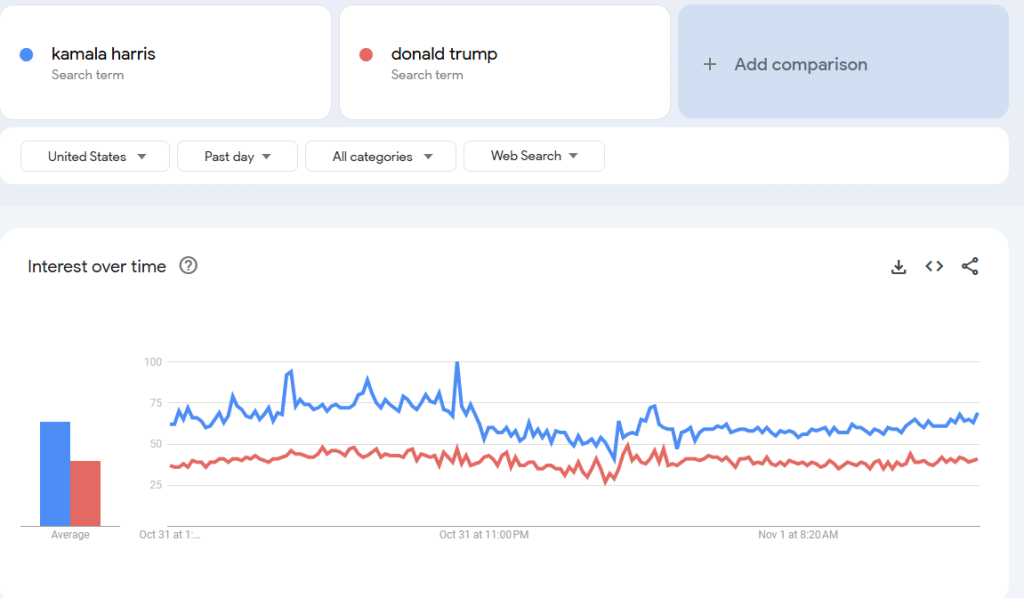For decades, polls have been a staple of American political discourse. We hear about “likely voters” and “margin of error” until the numbers start to blur together. And yet, election after election, we see polling missteps that make us question the validity of traditional methods. From predicting a Clinton landslide in 2016 to projecting a Biden lead that looked much slimmer on election night, mainstream polling has repeatedly proven unreliable. But there’s one “poll” that has consistently shown where the public’s attention, if not always its support, lies: Google Trends.

Unlike traditional polls, Google Trends measures what people are actively interested in, in real-time. This is where we see the conversations that matter, the curiosities people have, and the candidates on their minds. And according to Google Trends, Kamala Harris currently leads in search interest with a staggering 69 to 41 lead, painting a picture that is hard to ignore.
Here’s why this matters. When people Google a candidate, it often indicates a degree of intrigue that phone-call polls just can’t capture. People are more likely to search for politicians they find compelling, controversial, or charismatic. In recent years, we’ve seen Google Trends align shockingly well with election results, making it arguably the most telling indicator of public sentiment. Google processes around 8.5 billion searches per day, which is roughly 99,000 searches per second. Traditional polling can not come close to those numbers.
Harris’s current lead suggests that she’s generating far more interest than her opponent. This isn’t just curiosity; it’s the kind of engagement that often translates into votes. And the breadth of this interest tells a unique story: voters see her as a candidate worth learning about, for better or worse, while her opponent garners far less attention.
In the end, maybe it’s time to shift our trust from traditional polls to what people are actually searching for. Google Trends shows us a different picture, one that suggests Harris is not just competitive but positioned to win decisively. The numbers speak volumes, and if history is any guide, these numbers might be the most accurate predictor we have.





